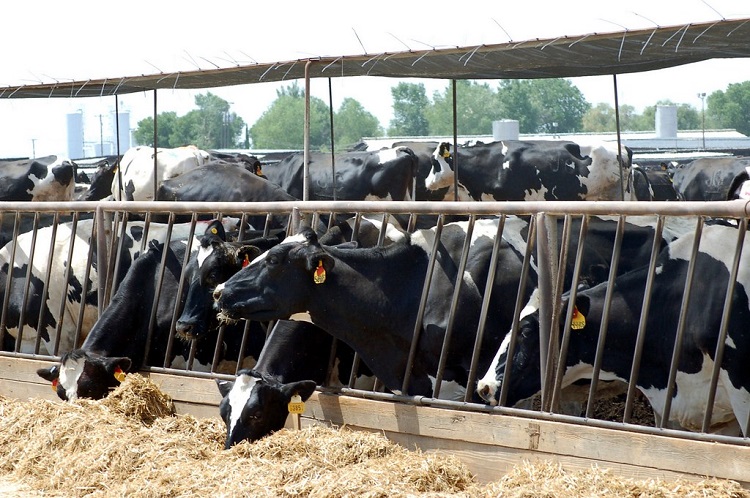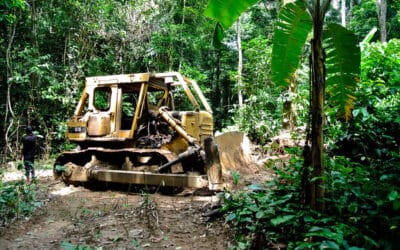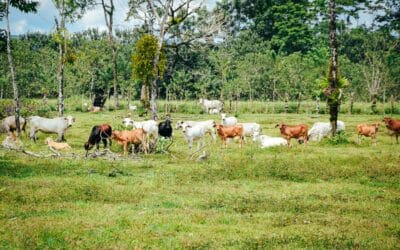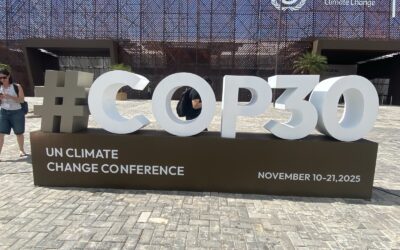LONDON, 8 JULY 2025 – The European Bank for Reconstruction and Development (EBRD)’s decision to cancel its proposed €40 million equity investment in Rex Concepts SA, the company responsible for operating Burger King and Popeyes restaurants in Eastern Europe, is a significant victory for all those concerned with human and planetary health and highlights the urgent need for systemic change in how public funds are allocated, the Green REV Institute, Global Forest Coalition (GFC) and allies in the Stop Financing Factory Farming (S3F) campaign reported today.
In communications from the EBRD on June 27, in response to an information request, the EBRD confirmed that it had “decided not to proceed with the planned investment in Rex Concepts SA.” The multilateral development bank’s decision follows an intervention by civil society organisations, led by the Green REV Institute and supported by 75 other organisations from across the region, who—after being notified about the project by the Early Warning System—sent a statement of concern to EBRD on 23 June, highlighting the environmental, public health, and social impacts of the project. The proposed investment would have facilitated the opening of up to 600 new fast-food outlets in Poland, the Czech Republic, and Romania, significantly expanding the footprint of industrial fast food promoting over-consumption of meat in the region.
“We must demand social and climate responsibility from investors instead of fuelling the fast food disaster. Has the EBRD considered who it is condemning to diet-related diseases? How is it helping Bad Food giants to ‘raise’ generations of consumers addicted to food that has never been real food? Why didn’t these funds go to plant-based farmers who could develop partnerships with schools and hospitals?” said Anna Spurek, CEO of Safe Food Federation. “This is good news, and we promise the EBRD that we will be watching their actions even more closely.”
High on the list of concerns communicated to the EBRD were the environmental impacts and contribution to climate change of fast-food chains, as they heavily rely on industrial animal production, a major contributor to greenhouse gas emissions, deforestation, and biodiversity loss.
Furthermore, the expansion of multinational fast-food chains undermines local food systems by displacing small-scale farmers and local food producers, replacing them with industrial supply chains that prioritise profit over sustainability and community well-being.
Regarding public health concerns, fast food is also a leading driver of unhealthy diets, which have become the primary cause of death in Poland, surpassing tobacco use, with over 50% of Polish adults now overweight or obese, and diet-related diseases, including cancer, on the rise. There is also the issue of the growing threat of antimicrobial resistance (AMR) due to the excessive and often unjustified use of antibiotics on animals in industrial livestock production.
“EBRD has a clear mandate to foster sustainable, inclusive, and equitable development. Its mission is fundamentally incompatible with financing projects that undermine public health and degrade the environment. Rather, its investments should actively uphold health and life quality, protect natural resources, and empower communities for better,” said Morgan Janowicz, representative from Green REV Institute.
The decision to cancel the investment also underscores the need for development banks to align their funding with global climate and sustainability goals. The EBRD must adopt stricter policies that exclude investments in industrial animal agriculture and fast-food chains, which are incompatible with the Paris Agreement and the EU Green Deal.
“This is not just about one project,” said Andrea Echeverri, lead of the Global Forest Coalition (GFC)’s Unsustainable Livestock Production Campaign and member of S3F. “It’s about setting a precedent. Development banks must stop financing harmful industries and start investing in solutions that address the climate crisis, uphold the rights of communities, and build equitable, rights-respecting, sustainable food systems.”
The Green REV Institute and partners urged the EBRD to redirect its resources toward initiatives that promote plant-based diets, sustainable agriculture, and public procurement reform. Such investments would not only align with the bank’s Green Economy Transition Strategy but also deliver long-term benefits for communities and the environment.
The cancellation of the Burger King and Popeyes expansion project sends a clear message to corporations and financial institutions that the era of unchecked industrial expansion at the expense of people and the planet is coming to an end.
“This decision gives us hope,” said Alessandro Ramazzotti, researcher at the International Accountability Project, a member of S3F. “It shows that when we come together to demand change, we can make a difference. Now, we must build on this momentum to create food systems that are fair, sustainable, and resilient.”




